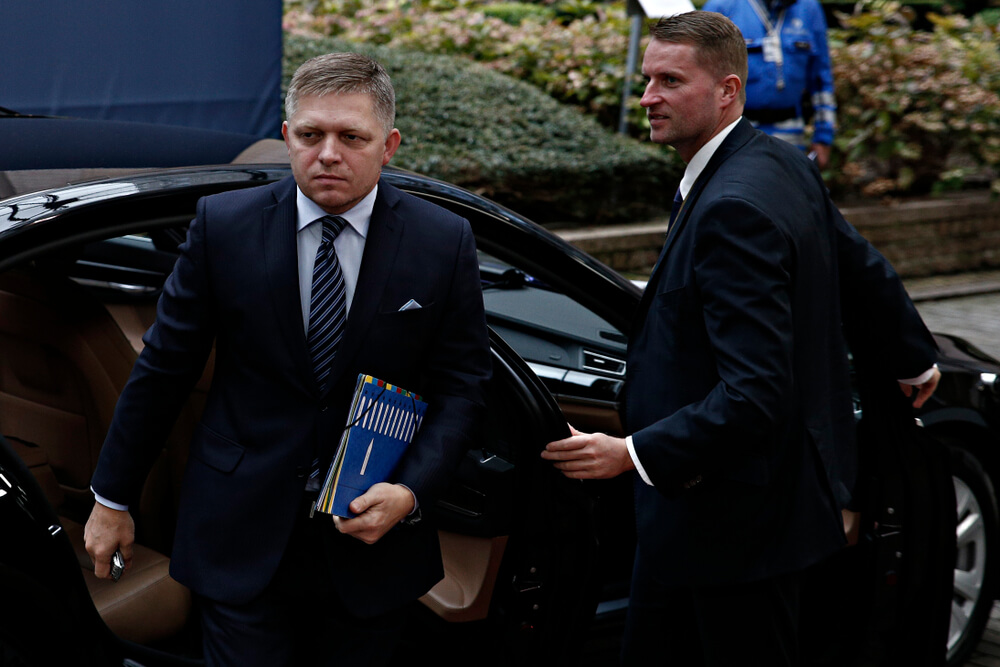The Kremlin sees the assassination attempt on Slovakian Prime Minister Robert Fico as a bad sign.
It has been a long time since the Kremlin was the only “bad guy” in town, not hesitating to cross any red line and even physically eliminate its opponents in Russia and abroad.
Loyalists, both inside and outside Russia, have adopted the long-established algorithm that suggests enjoying lucrative reimbursements and allowances while siding with the Kremlin.
At the same time, criticising the Kremlin's agenda often resulted in, if not a dose of Novichok or polonium, at least a cell in a Russian prison if the Kremlin critic was within Russian jurisdiction.
Slovakian Prime Minister Fico is well-known in Russia as one of the few leading politicians in Europe who does not belong to the anti-Russian mainstream.
Fico and especially his political partners have earned this reputation through their opposition to supporting Ukraine and, above all, through their views that Russia must remain a partner with whom Europe should talk.
Global condemnation of the attempt to kill Fico as unacceptable political violence was unanimous. In Russia, however, this act has a different dimension that the Kremlin cannot be satisfied with.
Conspiracy theories take their toll
This restlessness stems from a hypothetical situation that a Kremlin critic has already discussed. According to this scenario, entirely new events would occur not only outside of Russia but also inside Russia if a hunting season for individuals who initially sold their souls to the Kremlin began.
The anti-Western conspiracy theories that Moscow's propaganda has been propagating to the Russian public for years can now hurt the Kremlin itself. This is evident in the recent assassination attempt on Robert Fico.
No one among the Russian loyalists and propagandists will ever believe that a single activist carried out an assassination attempt on Robert Fico
No one among the Russian loyalists and propagandists will ever believe that a single activist carried out an assassination attempt on Robert Fico due to years and decades of exposure to conspiracy theories about the West.
None of them will believe the conclusions of the Slovakian investigation if it confirms that the assassin acted alone and that there were no foreign services behind him.
Instead, suspicion is already circulating in Russian circles that some anti-Putin forces, possibly in conjunction with Western governments or secret services, are behind an assassination attempt on Robert Fico.
Life is worth more than privileges
Such interpretations are a kind of psychological self-defence mechanism.
Before the Kremlin brought them on board, the majority of Kremlin loyalists were unknown or faced financial difficulties.
They will continue to work for the Kremlin unless there is a much greater threat than the danger of losing their constant financial injections, political privileges, or social status.
Life and freedom are the things that are obviously most valuable to most people, including those who work for the Kremlin.
Anyone who feels like a Kremlin loyalist understood the attempt to kill the Slovakian prime minister as an important message about the existential threat
Therefore, this dilemma—financial abundance on the one hand and the threat of elimination on the other—was the main reason why the Kremlin was so successful in recruiting loyalists, enabling it to build a massive network of loyalists and confidants.
Therefore, anyone who feels like a Kremlin loyalist, whether in Russia or outside the country, understood the attempt to kill the Slovakian prime minister as an important message about the existential threat.
Very few of those loyalists, confidants, and propagandists sincerely like the Kremlin. Most of them help the Kremlin because of the money they are getting for advancing the Kremlin's agenda.
Fear emerges
Above all, these are the people who have decided to advance the Kremlin's interests, not for ideological reasons but because of the very generous reimbursements.
One of the principal reasons for their loyalty was that they did not feel frightened or endangered by their work for the Kremlin.
 The fate of the Slovakian PM troubles the Kremlin regime and its enablers - Robert Fico
The fate of the Slovakian PM troubles the Kremlin regime and its enablers - Robert Fico
People who are loyal to authoritarian regimes and have prospered because of it will not be inclined to reconsider their loyalty unless there is a real threat or danger to them. This has changed with the assassination attempt on Robert Fico.
The fate of the Slovakian PM troubles the Kremlin regime and its enablers, even though legal retribution for those who served the Putin regime is still a long way off, if it is possible at all.
It is something that worries them all, especially those loyalists and confidants who are in Russia and in countries where there are strong pro-Russian voices, and Slovakia is just one of them.
The day the Kremlin’s propagandists and loyalists begin to fear retribution and/or punishment, at that very moment, the regime’s impunity will start to diminish.